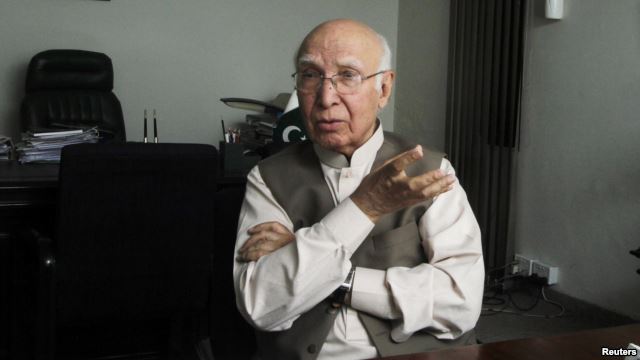
LITTLE good comes out of an unwanted visit, but in the world of diplomacy, it is always better to try than not. Sartaj Aziz, the PML-N point man on foreign policy and national security, went to Kabul on Sunday as a barely welcome visitor. Mr Aziz, after all, had already earned the ire of the Karzai administration for allegedly suggesting a carve-up of Afghanistan to accommodate the Afghan Taliban — a claim that the PML-N quickly and strongly repudiated. In any case, it would have hardly gone unnoticed that Mr Aziz’s trip, during which he invited President Karzai to visit Pakistan, came on the heels of the very highest level of British politicians travelling to Pakistan to talk security. The British visitors to Pakistan most likely pressed hard to get the new Pakistani government and the security establishment to re-engage a balky President Karzai and help restart the abortive Doha reconciliation process. So an unwanted visit by a potentially reluctant visitor — it was hardly an auspicious start to the PML-N leadership’s foray into Afghanistan.
As if to underscore the sheer intransigence and near petulance that has come to characterise the Karzai camp in recent months, on Monday, President Karzai himself appeared to suggest that the invitation to visit Pakistan was barely worth his consideration, accepting the offer in principle but setting various preconditions for an actual visit. A day earlier the Afghan foreign minister, Zalmai Rassoul, had also tinged his optimism on positive change going forward in the relationship with Pakistan with pessimism about what past contacts with Pakistan had, from the Afghan government’s perspective, brought over the years. Into that most staggering of challenges, then, Mr Aziz waded in on Sunday and as is the nature of such high-profile diplomacy, the positive results, if any, will only be known in the weeks and months ahead.
What is clear, though, is that Pakistan’s — the security establishment’s, really — attempt to sideline Mr Karzai has, as could have been predicted, backfired. Whether Mr Karzai is part of the solution or part of the problem when it comes to a post-2014 settlement was not for Pakistan to decide, especially when Mr Karzai will be in the presidency until next April. To argue for an Afghan-led and Afghan-owned reconciliation process while dismissing as irrelevant and unwanted the incumbent head of the Afghan government was hubris that could easily have been avoided. For reasons right and wrong, no one really trusts each other in the AfPak conundrum — but that does not mean they cannot work together at all.









Whoa…. hats off to the author. The first article on this blog that makes sense. Finally accepting that Pakistan should not have any say in Afghanistan’s future !! That’s a good beginning.
Karzai is now a guest in the President House in Kabul; it is a matter of time before Kabul falls and the Taliban take over. Whatever Karzai thinks does not really matter. That is the reality and the rest is speculation.
Does anyone in their right mind ever think that the US will negotiate unless they were brought to a standstill in the battlefield. The US certainly did not win Afghanistan.